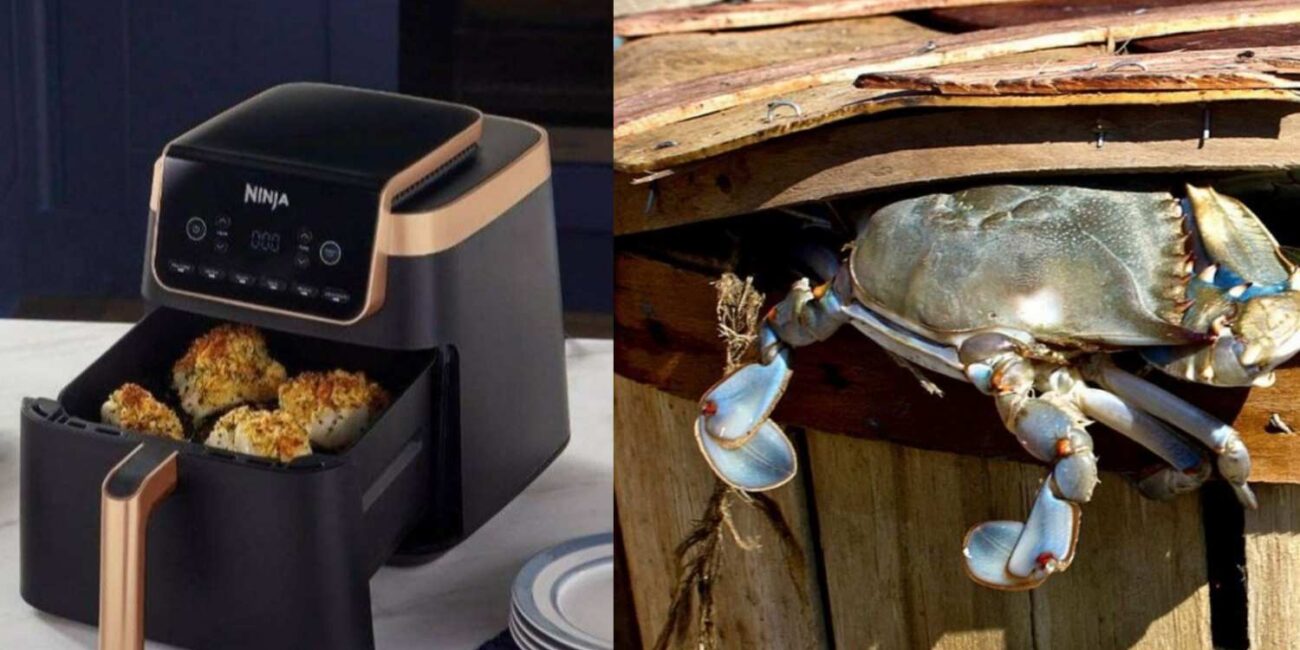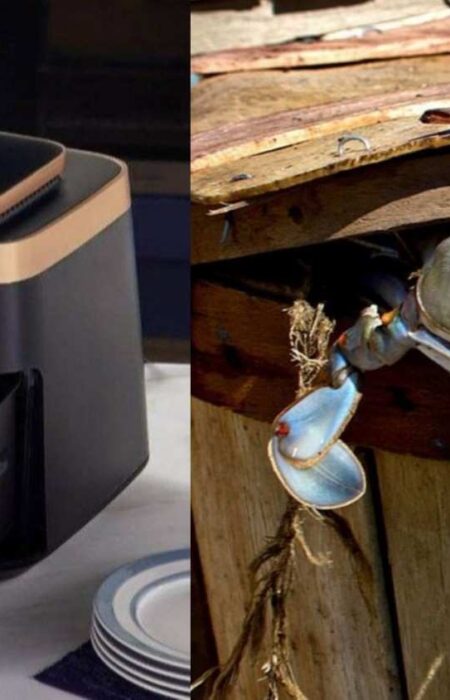I Feel Like I Just Watched a Crime”: TikTok Video of Woman Air Frying Live Crabs Sparks Outrage
What happens when you put live animals into an air fryer? They suffer and die — and, apparently, go viral. That’s the disturbing reality behind a recent TikTok video that has left viewers shocked and appalled.
The clip, which quickly gained traction across the platform, shows a TikTok user named Chels preparing what appears to be a typical seafood recipe. With upbeat narration and bright kitchen visuals, it starts off like any other cooking tutorial. “Y’all, let’s make a crab boil in the air fryer…” she chirps.
At first, the video seems routine: Chels, wearing blue gloves, places corn and potatoes into the bowl of a transparent glass air fryer. But things take a grim turn. Without hesitation, she adds two live Maryland blue crabs to the mix, coats them with a heavy layer of seasoning, and sets the temperature to 400°F (200°C) for 15 minutes — all while watching on.
Her tone shifts briefly as she acknowledges the discomfort. “Do not knock it until you try it,” she says. “It was sad watching them kinda… you know. But these crabs came out so good and juicy. I was not expecting them to come out this good.”
The response from the TikTok community was swift and fierce.
“I feel like I just witnessed a murder,” one user, @werty1627, said in a stitched reaction video. “How is that not a community guideline violation? I feel like I just watched a crime.”
Indeed, the video has triggered widespread backlash, spawning dozens of stitches and commentaries denouncing the act as cruel and unnecessary. Many viewers expressed horror that something so distressing could not only be posted but celebrated online.
Josh Cottle, an anatomy teacher and science content creator with nearly a million followers on TikTok, was one of many to speak out.
“This is terribly inhumane,” he said in a response video. “Crabs have advanced nervous systems. They possess nociceptors—just like humans—and have been shown to respond to painful stimuli. They even guard injured limbs, which is a strong indicator that they feel pain.”
Recent scientific research supports his claims. A 2024 study from the University of Gothenburg provides some of the clearest evidence yet that crabs experience pain, confirming that painful stimuli are processed by their brains.
And yet, Chels — now known online as the “glass air fryer crab lady” — remains unrepentant. In her video’s conclusion, she declares that she’ll be air frying crabs again in the future.
Animal rights advocates say this incident is part of a troubling trend: the commodification of cruelty on social media. Rage-bait content like this — shocking and often distressing — still garners attention, and in the age of virality, views often matter more than ethics.
Even though the outrage was overwhelming, the backlash itself likely boosted the video’s reach. Algorithms don’t differentiate between positive and negative engagement — they just count the clicks.
Worse still, legal protections for crabs in many parts of the world remain vague or nonexistent. In the United States, invertebrates like crabs are not covered under the Animal Welfare Act, which protects only warm-blooded animals and certain marine species. This means acts that would be deemed cruelty for a dog or cat can be posted online with little fear of consequence if the victim is a crab.
That’s not the case everywhere. In the European Union, several countries have implemented humane handling regulations for crustaceans. Some have even banned live boiling of lobsters and crabs unless the animals are stunned first — a recognition of their capacity for pain.
The viral video has reignited questions about the ethical standards — or lack thereof — on social media. A 2024 report from the UK Safer Internet Centre found a significant rise in animal abuse content across platforms. The RSPCA’s 2023 Kindness Index also highlighted that 43% of teens aged 16 to 17 had witnessed animal cruelty online.
Unfortunately, these disturbing cases are becoming more common. Just last week in Pennsylvania, a woman was convicted of aggravated animal cruelty after killing animals on livestreams to gain views. In one case, she reportedly waited until she had enough likes before fatally harming a chicken.
Such legal accountability, however, remains elusive when it comes to creatures like crabs — whose suffering still isn’t widely acknowledged, let alone protected.
As Paul McCartney once famously said, “If slaughterhouses had glass walls, everyone would be vegetarian.” In this case, the walls were literally glass — but the shock didn’t lead to compassion. It led to virality.
And for now, that may be all some creators are looking for.




